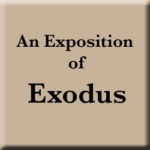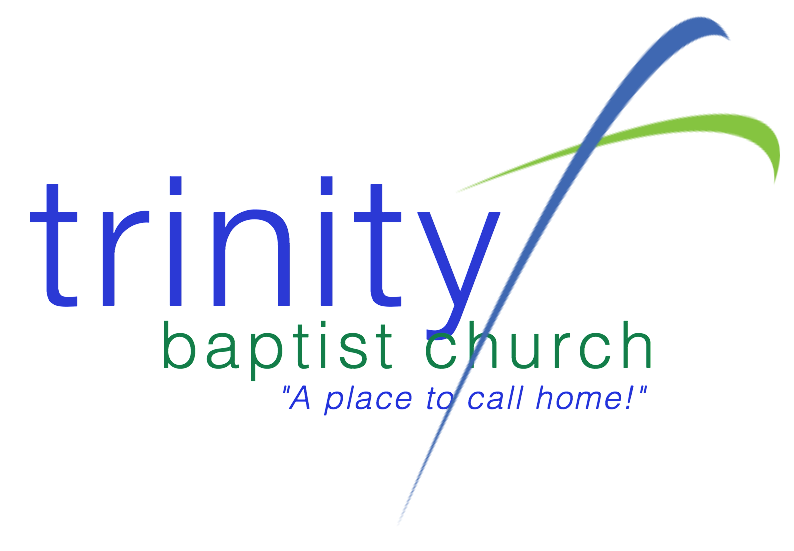
[sections collapse="always"][section title="Read More"]
This exposition of Exodus 20:8-11 by Pastor Rod Harris was delivered at Trinity Baptist Curch on Sunday morning, March 3, 2019.
Intro:
It would certainly be an understatement to say, “Things have changed.” Do you remember “Blue Laws?” Did you know that the NFL did not officially recognize Sunday games until 1949? We’ve gone from being a society shaped by a certain view of the Sabbath to one that hardly ever gives it a thought. Alexis McCrossen says, “Americans went from viewing Sunday as a holy day of rest, to a day of cultural enlightenment, to one of mindless consumption and amusements; they went from thinking of the day in terms of broad public purposes to goofing off or finding the best bargain.” McCrossen is not alone. Bruce Ray bemoans what he refers to as the “McSabbath.” He concludes that, “By having church services on Saturday night, people can have the whole day on Sunday to go hiking, sailing, shopping, without being inconvenienced by having to attend services. We can just fit God into our schedules the way we do piano lessons and dental appointments. Then if something more interesting comes along, we can always reschedule…Worship services are quick, easy, convenient and user-friendly. Little or no sacrifice is required.” I think both are right and they address an issue that has largely been ignored in the modern church.
It is the only one of the “Ten Words” not reiterated in the New Testament. By that I mean there is not a restatement of the command, there are references to the Sabbath and the observing of the Sabbath but not specific instructions regarding it. It has, through the years, been the source of great confusion, argument and debate. The command to remember the Sabbath Day and to keep it holy. What does it mean? How does it apply to the Christian? Discussions of these issues often generate far more heat than light. I hope that today we can examine this issue and come to a biblical understanding of this “difficult” issue.
Text: Exodus 20:8-11
Let’s not forget the context. The people of Israel have been brought out of Egypt. They are gathered at the foot of Mt. Sinai to meet God. The sky is blackened by great clouds. Lightening flashed. Thunder rolled. The earth shook as God descended in smoke and fire. A voice thundered, “I am the Lord your God who brought you out of Egypt. You are to have no other gods in my presence.” It was an awesome and terrifying experience. We call them the Ten Commandments. This is our Sovereign, our King declaring, “Here is the life that pleases me.” “This is how I expect you to live as my people.” Jesus summed up the law by saying, “Love the Lord your God with all your heart, soul, mind and strength…and love your neighbor as you love yourself.” Love God, love others. Commands 1-4, the “vertical commands” = loving God; commands 5-10 the “horizontal commands” = loving others.
Note the progression of the commandments:
- Whole-hearted devotion to God/an exclusive devotion
- Don’t worship me in a way that detracts or distorts my glory
- Reverence and respect me
That brings us to the fourth commandment, the last of the “vertical” commands. When we consider the Old Testament law it is clear that some are civil and deal with Israel uniquely as a “theocracy”. Thus there are civil commands that relate to the nation of Israel only. No other nation is called to the same standard. It is clear from the reading of the New Testament that those laws do not apply to us as the church. Other laws were ceremonial. They were signs and pictures of Christ. They are fulfilled with the coming of Christ and are no longer in effect. I point this out because I’m convinced that there are civil and ceremonial aspects to this command that no longer apply to us while the moral aspect does. I’m also convinced that Christ is the fulfillment of the fourth commandment - He is our rest.
As we work our way through this text I believe we discover that…
Thesis: The fourth word thundered from the smoke and fire of Sinai calls for a day of rest for the purpose of remembering and reflecting on the goodness of God in creation and in redemption.
I want make three observations.
- The Command itself.
- The Lord’s Day.
- Some Observations.
Conclusion:
The Lord is honored when we observe the Lord’s Day. But we need to guard against a legalistic approach. We do not base our standing before God on what we do on Sunday. We do not judge others for they way they keep or fail to keep the Lord’s Day holy. There are no set man-made rules or regulations for Sabbath keeping. That’s what the Pharisees did and Jesus condemned them for it. The way we avoid legalism is to remember that the Lord’s day is for celebrating the freedom that we have in Christ. After all Jesus said, “The Sabbath was made for man, not man for the Sabbath.” That doesn’t mean “anything goes” but it does mean the Sabbath is not a straitjacket.
If you are looking for a list of acceptable practices, a list of does and don’ts you’re heading down the wrong path. We must leave room for Christian liberty and godly judgment. If you want a list, honestly you are probably looking for what you can get away with - and yet technically keep the Sabbath. Bottom line, if you are looking for a loophole - you’ve missed the point!
Set aside the Lord’s Day as a regular, weekly act of devotion to God and the things of God. Take a break from the routine and the ordinary. Give time to the Lord in worship, prayer and reflection. Spend time with family and friends. As much as possible, a day off the calendar and off the clock. I think you will find…He’s worth it!
[/section][/sections]
